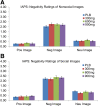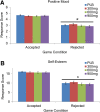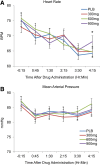Cannabidiol Does Not Dampen Responses to Emotional Stimuli in Healthy Adults
- PMID: 28861510
- PMCID: PMC5569582
- DOI: 10.1089/can.2017.0014
Cannabidiol Does Not Dampen Responses to Emotional Stimuli in Healthy Adults
Abstract
Introduction: Cannabidiol (CBD) is a nonpsychoactive constituent of whole plant cannabis that has been reported to reduce anxiety-like behaviors in both pre-clinical and human laboratory studies. Yet, no controlled clinical studies have demonstrated its ability to reduce negative mood or dampen responses to negative emotional stimuli in humans. The objective of this study was to investigate the effects of CBD on responses to negative emotional stimuli, as a model for its potential anxiety-reducing effects. Materials and Methods: The study used a double-blind, placebo (PLB)-controlled, within-subjects design in which 38 healthy, drug-free participants consumed oral CBD (300, 600, and 900 mg) or PLB before completing several behavioral tasks selected to assess reactivity to negative stimuli. Dependent measures included emotional arousal to negative and positive visual stimuli, perceptual sensitivity to emotional facial expressions, attentional bias toward emotional facial expressions, and feelings of social rejection. In addition, subjective drug effects and physiological data were also gathered during each experimental session to assess drug effects. Discussion: CBD did not dampen responses to negative emotional stimuli and did not affect feelings of social rejection. The high dose of CBD (900 mg) marginally reduced attentional bias toward happy and sad facial expressions, and produced a slight increase in late-session heart rate. CBD did not produce detectable subjective effects or alterations in mood or anxiety. Conclusion: These findings indicate that CBD has minimal behavioral and subjective effects in healthy volunteers, even when they are presented with emotional stimuli. Further research into the behavioral and neural mechanisms of CBD and other phytocannabinoids is needed to ascertain the clinical function of this drug.
Keywords: behavior; cannabidiol; emotional stimuli; psychopharmacology.
Conflict of interest statement
No competing financial interests exist.
Figures






References
-
- Campos AC, Fogaça MV, Sonego AB, et al. . Cannabidiol, neuroprotection and neuropsychiatric disorders. Pharmacol Res. 2016;112:119–127 - PubMed
-
- Zuardi AW, Shirakawa I, Finkelfarb E, et al. . Action of cannabidiol on the anxiety and other effects produced by Δ9-THC in normal subjects. Psychopharmacology (Berl). 1982;76:245–250 - PubMed
-
- Zuardi AW, Cosme RA, Graeff FG, et al. . Effects of ipsapirone and cannabidiol on human experimental anxiety. J Psychopharmacol. 1993;7:82–88 - PubMed
Grants and funding
LinkOut - more resources
Full Text Sources
Other Literature Sources
